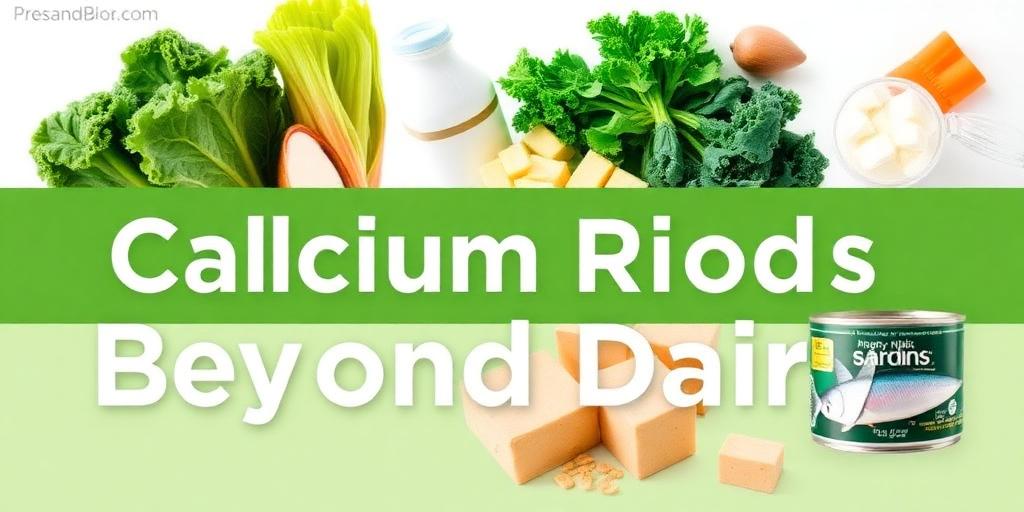Calcium and Bone Health: More Than Just Dairy
Calcium is well-known for its crucial role in maintaining strong and healthy bones. While dairy products are often touted as the primary source of calcium, a variety of other foods can contribute significantly to your daily intake. This article explores the importance of calcium for bone health and highlights diverse sources beyond dairy.
Why Calcium Matters for Bone Health
Calcium is a mineral essential for numerous bodily functions, with bone health being one of the most critical. Bones act as a calcium reservoir, storing the mineral and releasing it into the bloodstream when needed for other functions like muscle contraction, nerve transmission, and blood clotting. If calcium intake is consistently low, the body will draw calcium from the bones, weakening them over time and increasing the risk of:
- Osteoporosis: A condition characterized by decreased bone density and increased fracture risk.
- Osteopenia: A precursor to osteoporosis, indicating lower-than-normal bone density.
- Fractures: Bones become more susceptible to breaks, especially in the hip, spine, and wrist.
Beyond Dairy: Non-Dairy Sources of Calcium
While dairy products like milk, yogurt, and cheese are excellent sources of calcium, many individuals may have dietary restrictions or preferences that limit their consumption. Fortunately, numerous non-dairy options can help you meet your daily calcium needs:
- Leafy Green Vegetables: Kale, collard greens, and spinach contain significant amounts of calcium. Although spinach has a high calcium content, its bioavailability is lower compared to other greens due to its oxalate content.
- Fortified Foods: Many plant-based milk alternatives (almond, soy, oat), cereals, and orange juice are fortified with calcium. Check the nutrition labels to determine the amount of calcium per serving.
- Tofu: Tofu processed with calcium sulfate is an excellent source of calcium. The calcium content can vary depending on the processing method, so check the label.
- Fish with Edible Bones: Canned sardines and salmon with bones are rich in calcium. The small, soft bones are easily digestible and provide a substantial calcium boost.
- Nuts and Seeds: Almonds, sesame seeds, and chia seeds contain calcium, along with other beneficial nutrients.
- Beans and Legumes: White beans, kidney beans, and chickpeas offer a moderate amount of calcium per serving.
Maximizing Calcium Absorption
Consuming calcium-rich foods is only part of the equation. Several factors can influence how well your body absorbs calcium:
- Vitamin D: Vitamin D is crucial for calcium absorption. The body synthesizes vitamin D from sunlight exposure, but supplementation may be necessary, especially during winter months or for individuals with limited sun exposure.
- Magnesium: Magnesium plays a role in bone health and can influence calcium absorption. A balanced intake of both minerals is essential.
- Oxalates and Phytates: These compounds found in some plant-based foods can bind to calcium and reduce its absorption. Cooking these foods can help decrease their oxalate and phytate content.
- Sodium and Caffeine: Excessive sodium and caffeine intake can increase calcium excretion through the urine.
Meeting Your Daily Calcium Needs
The recommended daily calcium intake varies depending on age and life stage. Adults generally need around 1000-1200 mg of calcium per day. Consult with a healthcare professional or registered dietitian to determine your specific calcium needs.
By incorporating a variety of calcium-rich foods into your diet and optimizing absorption through adequate vitamin D and other nutrients, you can support strong and healthy bones throughout your life. Remember that calcium is just one piece of the puzzle; a balanced diet and regular weight-bearing exercise are also essential for overall bone health.









